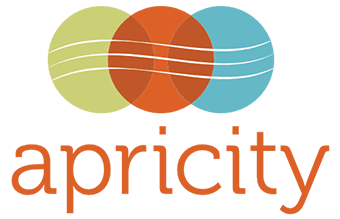3.5 High Intensity Treatment Services SUD Fox Cities
The typical entry point for our program is 45-days of high-intensity residential addiction treatment, in which clients attend group counseling and other programming in order to attain stabilization. Clients will attend multiple groups a day, seven days a week, addressing topics including coping skills, shame, thinking errors, assertive communication, and boundaries. Clients will also meet with their primary counselor throughout the week to work toward personal goals and talk through challenges.
3.1 Low Intensity Treatment Services AODA Fox Cities
Following the successful completion of a 45-day high-intensity residential treatment program at Apricity, clients may transition into our Low Intensity Treatment Services. This enables clients to continue living at our facility, attend groups, and meet individually with their primary counselor, all while transitioning back into the community for work, volunteering, education, and support network building. Our extended program is only available to clients that have completed Apricity's 45-day program. Longer treatment is associated with more positive outcomes, however, it's best to work with your treatment team to decide the appropriate length of time based on your individual needs. Apricity provides options for longer substance use disorder treatment plans.
Semi - Independent Living Program
Following successful completion of the low-intensity program at either Mooring House or Casa Clare, eligible clients may apply to participate in Apricity’s gender specific Semi- Independent Living Treatment (SILT) Program. Clients attend weekly groups and individual sessions at Mooring House (men) or Casa Clare (women), but will live off-site in a shared living space to gain independence and transition back to the community.
Sober Living Wisconsin
Apricity Sober Living is available to any person who has successfully completed a 30 day substance use disorder treatment program. The program can be Apricity Residential Treatment or other AODA treatment program. Studies indicate that the likelihood of maintaining long-term sobriety doubles when those recovering reside in a sober living house.
Adult residential AODA treatment FAQ
Please see our Admissions page for details on how to arrange for you or your loved one to come to treatment.
When you come to one of our residential facilities you’ll be met by one of our Intake Coordinators who will give you a tour and help you through the intake process. One of your peers will be assigned to help show you around and answer questions for you. You’ll have a primary counselor with whom you’ll meet weekly for individual counseling sessions. You’ll attend groups, participate in program activities, help with cooking and cleaning around the facility, and get to know your peers and our staff. You can check out our Residential Treatment page for details on how each of our programs differs.
While no day is the same, we offer a structured schedule for our clients to follow, and a typical day might look like this: Wake up, have a cup of coffee and eat some breakfast with your peers, get ready, attend the daily reading and exercise programming, and then complete your assigned household chore. At 10:00 AM you’ll attend your first group, followed by lunch, then two afternoon groups at 1:00 PM and 3:00 PM. If you’re on cooking crew you’ll help with dinner, sit down to eat with your peers, and then spend the evening working on treatment assignments, enjoying a quick phone call with a loved one, and unwinding from the day.
Please click here for Apricity Residential Treatment Rules. Click here for the Casa Clare packing list and here for the Mooring House packing list.
The initial high-intensity treatment program (provided you are not arriving from another treatment facility) is typically at minimum 45 days. You may choose to continue in treatment beyond this time frame; please see Residential Treatment page for more information on our extended programming.
While many of our clients enjoy support and structure from 12-step programs, our Residential Alcohol and Other Drug Addiction (AODA) Treatment curriculum is not 12-step-based. Our groups contain evidence-based material and exercises on topics to include coping skills, shame, resilience, Rational Emotive Behavior Therapy, alternative thinking, and assertive communication.

